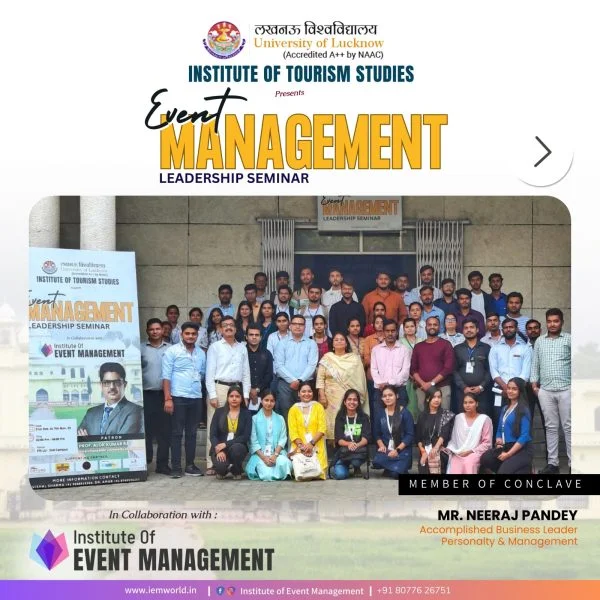
Diploma in Event Management: A Comprehensive Guide
Event management has become a popular and lucrative career path in recent years. As businesses, organizations, and individuals seek to host events, there is a growing need for skilled event managers to plan and execute successful events of all types and sizes. Without a doubt from conferences and conventions to weddings and parties, event managers handle all the details and logistics that go into putting on an event.
A diploma in event management provides the essential knowledge and training needed to begin a career in this exciting industry. In this comprehensive guide, we will explore what a diploma in event management entails, the key subjects covered, career prospects, and tips for choosing the right program.
Table of Contents
What is Event Management?
Event management is the process of applying project management principles to organize all the elements involved in an event. Along with event managers are responsible for planning, organizing, implementing, controlling, and evaluating events such as conferences, concerts, weddings, and other special events.
Key responsibilities of an event manager include
Moreover event managers work closely with clients and stakeholders to ensure their events meet objectives. Apart from this they oversee all details and activities to deliver a seamless, successful event experience for attendees and participants. Whereas strong communication, organization, problem-solving, and management skills are essential for event managers.
Benefits of a Diploma in Event Management
Pursuing a diploma in event management can prepare you for a dynamic career in this fast-paced industry. Here are some of the key benefits:
Obviously with focused training and education, A Diploma in Event Management: A Comprehensive Guide can prepare you for diverse career paths in this dynamic field.
Key Subjects Covered
A diploma program in event management generally covers a wide range of topics to provide a comprehensive overview of the industry. Typical subjects include:
Event Conceptualization and Design
This covers developing event goals, objectives, budgets, schedules, and proposals. Students learn about tying events to organizational missions and creating experiences that engage attendees.
Event Logistics and Operations
Essential operational aspects of events are covered such as venue selection, catering, staffing, equipment, permits, contracts, and managing vendors.
Marketing and Communications
Strategies for effectively promoting and publicizing events to target audiences are taught. This includes areas like market analysis, sponsorship, advertising, PR, and utilizing social media.
Financial Management
Budgeting, finance, accounting, negotiation skills, and risk management strategies are covered to manage the costs and revenues of events.
Project Management
Applying project management techniques to coordinate events and manage resources before, during, and after events is a key focus.
Event Technology
Leveraging event management software and latest technologies for aspects like registrations, digital marketing, presentations, and data analytics are taught.
Legal Issues and Ethics
Students gain an overview of laws, regulations, accessibility, sustainability, and ethical issues pertaining to events.
Protocol and Attendee Management
This focuses on front-of-house event operations – providing quality customer service, managing crowds, catering, transport, and ensuring attendee comfort and safety.
In addition, electives allow students to specialize in specific areas like meetings & conventions, sports events, festivals, weddings, and other interests. Furthermore programs also include a capstone project or internship for hands-on learning.
Career Prospects for Graduates
A diploma in event management opens up a versatile range of career opportunities across industries. Here are some of the top jobs graduates can pursue:
Graduates can seek employment with:
Apart with many graduates also successfully launch their own entrepreneurial event planning and management consultancy businesses. Along with sufficient experience and expertise, the potential to earn a high salary and advance into leadership roles within organizations is strong.
Tips for Choosing the Right Diploma Program
When comparing diploma programs in event management, So here are important factors to consider:
Apart from this a worthwhile diploma program will provide the perfect blend of theoretical and practical learning along with professional connections to launch your event management career.
Starting a Fun and Fulfilling Career
Undoubtedly a diploma in event management offers an action-packed, dynamic education for an exciting career. You will gain specialized knowledge and experience to plan and deliver successful events while getting connected within the industry. With creativity, logistical skills, and passion for bringing people together, you can thrive in the stimulating world of event management.








